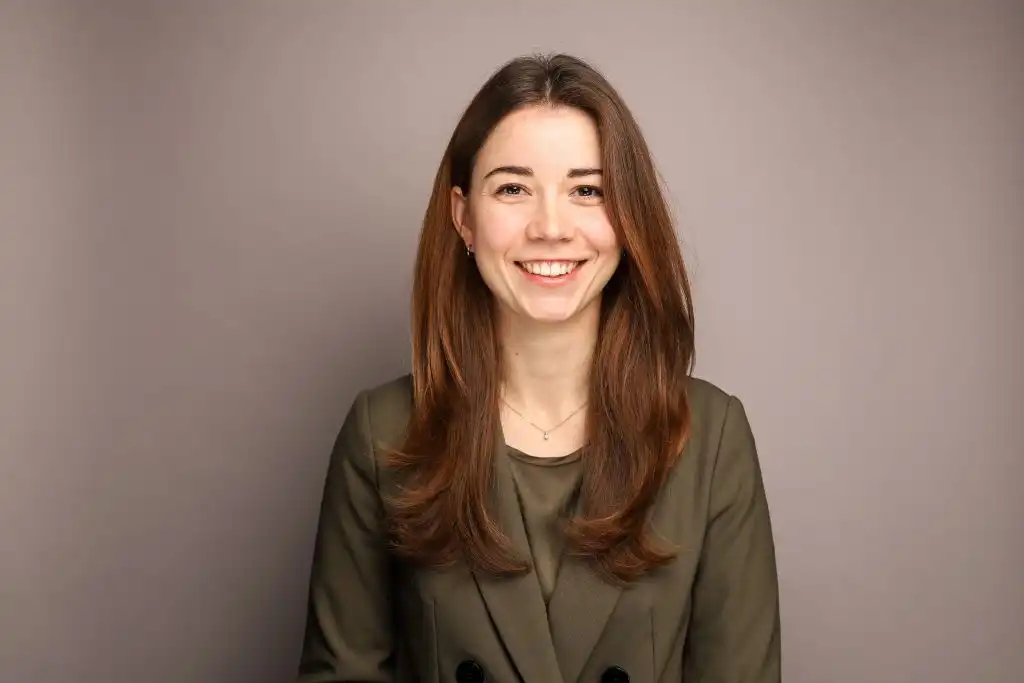Home>Hannah, Evaluation Manager at GIZ
10.09.2025
Hannah, Evaluation Manager at GIZ

Hannah Weifenbach has graduated in International Development with the thematic concentration in project management and a regional focus on Africa in 2021. She works as evaluation manager in the corporate evaluation unit of GIZ, the German Implementing Agency for Development, in Bonn, Germany.
What are your main responsibilities?
Each year, GIZ evaluates around 40% of all BMZ-commissioned projects exceeding €3 million, amounting to approximately 80–100 evaluations. In my role within the corporate evaluation unit, I am responsible for managing around 30 of those central project evaluations across all regions and sectors. This includes the conceptualization and quality assurance, contracting of external service providers, process coordination and intensive collaboration with project teams abroad. Moreover, I contribute to different aspects of continuously improving the evaluation system of GIZ, currently focusing on adjusting the methodology for fragile contexts and for efficiency gains.
On this job, I have gained a lot of experience in project management as well as expertise in evaluation methodology. On top of that, I acquired two less tangible and more tacit skills, which I however consider just as important : 1) Prioritizing tasks, since the workload consistently exceeds what can be accomplished in a single day and new challenges arise continuously and 2) being able to manage expectations and interests in processes with a variety of different stakeholders.
How did you prepare for this job?
Beyond academic qualifications and work experience, I believe the key to securing this position was staying curious and continuously learning about topics I am genuinely passionate about - in my case, the effectiveness of development cooperation - even when they were not directly part of my current role. I have always tried to stay informed and engage with people working on those matters – either known through previous jobs or by making new contacts, both inside and outside of my organization. It was through those connections that I learned about the opening of my first position at GIZ for example. Being able to exchange about jobs before applying helps to better understand the work and requirements, whether you truly want the job and to prepare for potential interviews. However, you sometimes also just need “a long breath” as we say in German, meaning a lot of endurance when applying again and again. I applied several times without success in the evaluation unit before getting my current position.
What is the most fascinating part of your job?
For me, the most fascinating part about this job is also one that is unfortunately only a very small part of it: Analysing the very specific evidence from project evaluations to draw conclusions on what works and what does not work on a broader scale and translate those into policy advice. Despite the variety of contexts and contents there are certain challenges and success factors that come up almost every single time. In practice, however, time for such cross-sectional or in-depth analysis is rare: As budgets are shrinking, we are fewer people doing the same amount of work. Consequently, staff has to keep up with a lot of administrative work, while much of the - in my view - more interesting analytical work is being outsourced to external service providers.
How did your PSIA experience contribute to the position you hold today?
The possibility within the degrees of PSIA to customize your classes according to your interests are very helpful to shape an individual profile. Certainly, my concentration in project management has laid conceptual foundations for today’s position: Classes such as “Development Evaluation Politics and Practice”, “Impact Evaluation in International Development” as well as statistical classes where we used programmes such as Stata and R have provided me with the needed expertise. Moreover, working across a wide range of subject areas has trained me to quickly immerse myself in new topics - a skill that is now essential for every project evaluation I am responsible for.
What advice would you give to current students?
I have learned that there is a difference between finding a job interesting on the broader scale and actually enjoying the tasks you do everyday. My advice would be to consider both and think about what is important to you not only in terms of the content, but also the work environment, possibilities to develop and the team. My most important advice however would always be to dream big and keep searching for a job that excites you, even if it may most likely not be the first one you get. Keep looking for something that feels right and makes you happy and healthy, whatever that may mean for you.
Information Sessions: Masters

Find out more about the Masters programs and the wide choice of specialisations offered by the 8 Schools of Sciences Po during our webinars dedicated to applicants.